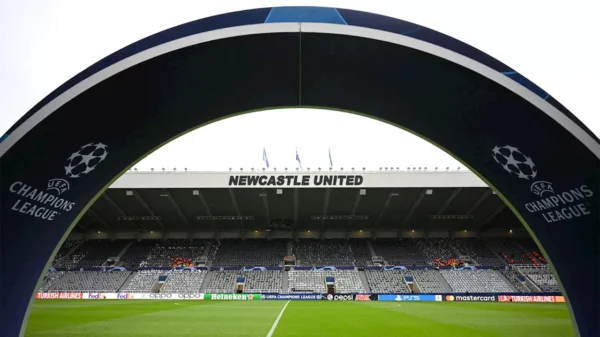Staff Writer Grace Holloway examines the Football Governance Bill as it passes through various stages in parliament and how protections for English Football clubs are halted due to legislative delays.
The proposed Football Governance Bill has been in the spotlight recently as it passes through the stages of parliament. Yet, it is described as appearing at a ‘critical juncture’ as the House of Lords have began to counter the bill.
The Football Governance Bill was first introduced under the Conservative government in March 2024. It underwent both the second reading and the committee stage in the Commons before the General Election was called. The Bill was included in the manifestos of the Labour, Conservative and the Liberal Democratic parties, as football became a key feature of many election campaigns.
After Labour’s victory, a revised version of the bill was introduced in the Lords in October, and on 15 January, it completed the first committee stage. However, hundreds of potential amendments were proposed, leading many to fear that this would cause delay to the bill.
“What you are doing is killing off the hopes and dreams and inheritance of fans who deserve far, far better.”
Lisa Nandy, Culture Secretary speaking about her Peers opposition to the Bill
A specific area of concern from the government is that the amendments proposed risk turning the bill into a ‘hybrid bill’. The hybrid bill would cause significant delays through forcing additional consultation with clubs, and increased committees.
Key objectives of the Bill
The main reasoning behind the Bill is to establish a new independent regulator for English football (the IFR). The regulator would ensure financial sustainability of clubs, with greater enforcement and monitoring of financial regulation.
The legislation comes after a period of financial issues within the football industry. Various clubs have faced debt issues, and Financial Fair Play punishments as a result. This included Derby County in 2021 who suffered financial difficulties, which influenced a wider discussion on the club’s long-term sustainability.
Beyond this, Premier League clubs have also faced financial fair play punishments, while women’s teams have faced reduced investments.
The Bill places emphasis on combatting financial issues and securing the heritage of football clubs. To achieve this, the regulating body would test new owners and directors to ensure they are sustainable to the club’s heritage, as well as approving any sale or relocation of stadiums.
Additionally, measures would be put in place to protect the English game and fans. The measure includes a major initiative to prevent English clubs from joining prohibited leagues. This step is in reaction to the previously proposed Super League, which was opposed by many fans and arguably did threaten the sustainability of English football.
How will this shape football?
Advocates for the Bill have placed emphasis on reductions in uncertainty surrounding club’s finances and reduce inequality. It is notable that the legislation is grounded based on fan engagement and protecting ‘club heritage’. From a fan’s perspective, and in the age of billionaire owners, this ensures the game remains true to its supporters.
However, the Premier League itself issued a statement in May last year highlighting concerns with the bill. In their statement, they claimed the bill could “weaken the competitiveness and appeal of English football.” Additionally Union of European Football Associations (UEFA) has voiced concerns on how the regulatory bodies powers may interfere with existing governing bodies.
The definite consequences of the bill are uncertain as the legislation is in the process of managing amendments and the final legislative stages. One amendment, originating from Lord Bassam, seeks to ban state-controlled clubs from English Football. If enacted, this would affect Manchester City and Newcastle United, whose ownership is linked to foreign governments.
Another vocal critique is Paul Barber, the chief executive of Brighton. When speaking to The Times, he pointed to a “lack of consultation” on the legislation. Yet in response, the sports Minister Stephanie Peacock highlighted 230 stakeholder meetings which took place in 2024, to ensure there was consultation on the effects of the bill.
The path forward
The Football Governance Bill is yet to conclude its period in the House of Lords. As the amendments tabled are immense, the bill may take a significant hit. A potential delay is likely, as the government may seek to persuade critics through further fan involvement. Ultimately, if the amendments make it difficult to pass through the Lords, the government may force it through.
On the whole, the bill appears to be necessary in the front of the changing financial landscape of English football clubs. Ensuring that the game and club’s heritage is protected through greater regulations, it seems sensible for ensuring the sustainability of football clubs.
One of the most notable additions to the bill is the prevention of a European Super League. This ensures that the competition and nature of the English Premier League is protected, based on its position as the most watched league in the world. If a Super League was formed with the top six clubs, then inequality may worsen within top flight English Clubs.
As the legislation enters the next stages, it is interesting to see how weakened the regulations may become in the face of opposition.















